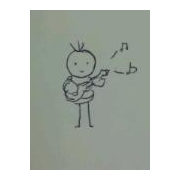PR
X
カレンダー
カテゴリ
10行エッセイ もしくは未分類・未編集
(236)10-line essays
(453)音楽10行エッセイ
(92)ライブレポ
(187)Music 10-line essays
(59)お知らせ Information
(46)お気に入り・お勧め紹介
(29)Favorite, recommendation
(90)自己紹介・ブログ紹介代用バトン
(21)日記代用バトン
(213)バトン置き場
(420)フリーページ
カテゴリ: Favorite, recommendation

From Kesennuma to the world "
With this slogan, Ikumi Kumagai expresses the current situation of her hometown and home ground Kesennuma , one of the places damaged badly by 3.11 earthquake disaster.
"blue" is color of sea and sky.
When she was eighteen, she left her hometown went to Tokyo to be a singer, but back then, she didn't succeed, and returned to the hometown.
Even so, her hometown welcomed her return warmly, and she couldn't give up her dream.
So since then, she has been based at Kesennuma even after she could make her debut in 2009, and " Getsurenka (moon love song) was adopted for a theme song of a movie and she rose in popularity.
She experienced 3.11 earthquake that destroyed vast area of eastern Japan.
She could escape from tsunamis, and her home was on high ground and safe.
But she witnessed massive tsunamis and fire destroying her home town.
Once she was conflicted about music, but when she visited a shelter to look for her relatives, children asked her to sing something for them.
At that time, she realized that music has power to encourage and heal people.
She held live performances wherever she was visited, and introduced the situation in stricken areas .
Since then, she thinks of her mission as performing music by "herself living her life in Tohoku" .
After this earthquake disaster, she rewrote about half of the lyrics in this album.
In this album, messages stand out that we must make every effort to overcome difficulty:
Saisei " (regeneration) ,
Followed by " Jikuashi " (the pivot leg) -"I don't mind lying to myself so that I can stay strong",
Kumono haruka " (faraway clouds) , which she wrote after her dream shattered once and returned to Kesennuma -"if I whine, please scold me like usual"
-I suppose back then, such atmosphere covered all over our country.
At the same time, she doesn't forget to express sadness and sympathy:
" Umi " (sea) -"here is the sea familiar to me, the sea I have come before ..."
" Niji " (rainbow) -"you don't need to hide when you are hurt, so keep your head up high"
Closing number is " Bokurano koe " (our voice) , which she wrote first after the earthquake disaster.
Even though her home town was damaged badly by earthquake disaster, as well as residents living usual daily life there, she writes songs and performs for granted.
This is to introduce the present situation in stricken areas , she believes.

In Japan, due to launching days of an authoritative hit-chart magazine, many CDs from major labels are on sale on Wednesdays.
My pocket diary includes calendar of the next year.
As I realized that next March 11 is Wednesday, I couldn't help wondering whether this affects on music scene next year
-I suppose she is the one who should make a release of something on this day if she is ready to.
Future aside... three years have passed, and we have still long long way to go.
While more than two hundred and sixty thousand people are still under refuge lives and progress of reconstruction is uneven ,
In the capital, the matter of concern -especially the government's, seems to be resumption of nuclear power plants and Olympic -I feel like suspecting .
To prevent memories and lesson of earthquake disaster from fading, there are various things that music and art and sports can do.
October 19, 2011 Teichiku Entertainment, TECG-30056
(Translation: Unable-to-think-up-handle)
( February )
( Last year )
( Back then )
◆ :Ready to place summery if asked
お気に入りの記事を「いいね!」で応援しよう
[Favorite, recommendation] カテゴリの最新記事
-
Combine / Nishimura Tomohiko 2025.07.30
-
Kyougen / Ado 2023.03.25
-
Discovery / Sing Like Talking 2020.09.29
【毎日開催】
15記事にいいね!で1ポイント
10秒滞在
いいね!
--
/
--
© Rakuten Group, Inc.










